information and resources for schools
Using the tabs to the left, you will be able to access a wealth of teaching resources for you and your pupils.
Please feel free to contact us on [email protected] and we will do our best to support you in any way we can.
Tools to Help You Interact With Pupils and Families
These resources are specifically aimed at teachers to help you to get a little more interactive with children while they learn at home:
Socrative
Socrative.com allows teachers to create simple quizzes that students can take quickly.
Learning by Questions.
Learning by Questions offers 60,000 questions, allowing pupils to deepen their knowledge and revise key facts.
Quizlet
Quizlet.com/live can be used to create keyword flashcards online.
Super Movers
Super Movers is an initiative from the BBC and the Premier League, intended to help primary school teachers motivate children to become more active.
Kahoot
A great app for generating timed quizzes is Kahoot.com
Poll Everywhere
Poll Everywhere is a useful tool to elicit feedback
Brainpop
Brainpop has a great set of videos, freely available for pupils.
Seneca Learning
Seneca Learning offers many online courses for pupils.
Young Writers
Great for building creativity – Young Writers.
How to share videos:
- Zoom – great for videos, webinars and sharing resources.
- Flipgrid everyone involved can record and share short videos.
- Screencastify is a free screen recorder allows you to capture, edit, share screencasts, animations of presentations and give feedback to pupils.
- Screencast-O-Matic is one more free and simple screen recorder. You can capture any area of your screen and add narration and video from your webcam.
- Periscope allows users to share ‘live’ videos and to interact within them.
- Google Hangouts/Meet – is a communication platform for messaging, video chat and for audio/ photo sharing.
- Microsoft Teams offers a wide range of resources – including video collaboration.
Please note: teachers should safeguard themselves at all times: consider your personal and professional safeguarding obligations before contemplating online technology to connect with your pupils. Work within school policies at all times. See our Safeguarding tab to the left to see some online safety videos you can share with parents.
Online Training and CPD For Teachers
We now offer a range of online courses to suit educational professionals who are passionate about their CPD, but don’t necessarily have the time to take even half a day out of the classroom. Flexible and affordable, our video-lead courses can be completed at your own pace, paused and restarted and re-watched as many times as you like.
We have also created a variety of free webinars and podcasts for you covering RSE, NQT Support and Safeguarding. Feel free to browse, watch and have a listen below.
Please visit our Digital Resources page here, to browse our online courses and resources.
Many of our training courses will continue to be offered online. We also offer face to face training where appropriate.
You can browse and book our courses as usual below or via our training page.
Safe Travel Yr 6 Police Resources
West Midlands Police have put together some resources to help your students feel confident to travel and also how to behave responsibly and safely while travelling to and from school. The resources can be covered in class or as an independent activity for students to complete at home.
- Travelling to Secondary School presentation
- Travelling to Secondary School worksheets and plenary work
- Travelling to Secondary School accompanying notes
- Safer Travel: What does a bus journey look like now?
- Safer Travel – what does a metro journey look like now?
- Getting through our stations – some things may have changed to help with social distancing
Safeguarding Training and Resources
SWGfl – Video Conferencing for Kids: Safeguarding and Privacy Overview
Here you’ll find information about the most popular video conference services. SWGfl have collected and compiled some of the technical and policy details published by each of the services so you can more easily see which of these are the most suitable for you.
Services For Education – Online Safeguarding Course
Do you work with children on a paid or voluntary basis? Perhaps you run a club or help out with extra-curricular activities? Services For Education is a trusted provider of safeguarding training in the UK, offering online, face-to-face and bespoke options for organisations and individuals. We have created an online safeguarding course for anyone who works with children, enabling them to stay up to date and show that they are fulfilling their duty of care.
Internet Safety Resources
While many children learn from home, maintaining internet safety is of paramount importance at the moment. Please see the resources below and share them with parents so they are aware of the risks of internet activity.
The Parents’ Guide to Teaching your Teen Online Safety – My Tutor
A practical guide for parents on how to keep teens safe online, including useful summaries of popular internet apps as well as the types of threats teens, could be exposed to online.
Interactive Anti-Bullying Information Tool for Parents and Carers
What is bullying? Check out this interactive informational tool for parents, created by Anti-Bullying Alliance.
NSPCC and BBC Videos on Internet Safety
Jessie & Friends: Online Safety Education for 4-7s
This fantastic set of animations from the CEOP Education team is aimed at children between four and seven years old and will help protect them from sexual abuse and other risks associated with being online.
General EYFS Information and Updates
What to Expect, When? Department For Education
This is a really useful document that you can purchase for a small fee. It was made specifically for parents and covers how to support a child with their learning and development during their first 5 years in the Early Years Foundation Stage.
Reception Baseline Assessment: Information for Parents
This is a really useful document that you can download that provides information about what happens in school when your child is doing the Reception Baseline Assessment.
Statutory Framework for the Early Years Foundation Stage
This document sets the standards that all early years providers must meet to ensure that children from birth to five;
- learn and develop well
- kept healthy and safe
- have the knowledge and skills they need to start school.
Non-Statutory guidance – Development Matters
Development Matters document is used by early years providers to support them in understanding how children develop and learn.
Non-statutory guidance – Birth Five Matters
Birth to Five matters is a document is used by early years providers to support them in understanding how children develop and learn.
Information, Guidance and practical support for delivery the EYFS Framework This is a really useful site to visit to support you to understand about the education programmes.
Reception Baseline Assessment
This link takes you the information about Reception Baseline assessment and there is a video to show you about how it is carried out.
Assessment and Reporting Arrangements – (ARA) – Reception Baseline Assessment
This guidance is for schools and governing bodies responsible for the reception baseline assessment.
The Seven Areas of Learning
In the early years we focus on ‘Characteristics of effective learning’ how children learn, and seven areas of learning in the Early Years Foundation Stage:
Nancy Stewart Interview: The Characteristics of Effective Learning
Blog about how children learn.
1. Personal, Social and Emotion Development
Surrey County Council – Learn with me – child development tips for parents
Cards containing tips on how to help your child to become independent, sociable and happy.
A Fine Parent – Part of the Positive Parenting FAQ series
100 ways for parents to be silly and playful with their children
The Handinhand Blog
Useful advice for ‘playful’ parenting
The National Literacy Trust
A variety of literacy and wellbeing resources, including a list of books that can be read with you children to support their emotional wellbeing.
The School Run – Personal, social and emotional development in EYFS
Useful ideas for all ages – the school run – free 14 day trial
Action For Children – Things to Do With Your Child
A list of inexpensive and easy activities you can do with your children.
Understood – 5 Social-Emotional Learning Games to Play With Your Child
A handful of social-emotional learning activities that can help your child manage emotions and work on social skills—and have some fun with you along the way.
Family Lives – Why Play Matters
The importance of how children learn through play.
2. Physical Development – Moving and Handling/Health and Self-care
Surrey County Council – Learn with me – child development tips for parents
Cards containing tips on how to help your child to become independent, sociable and happy.
Baby Centre
Blog post with activities that boost children’s physical development.
Imagination Tree – 40 Fine Motor Skills Activities
Here is a collection of 40 fine motor skills activities for young children that are easy to set up and promote a whole range of skills.
Active For Life – 49 fun Physical Activities you can do with children
This list of 49 fun activities for kids is the ultimate go-to for any playdate, home child care setting, or a morning or afternoon with a caregiver.
Family and Childcare Trust – Find Childcare and Family Services in your area
Your local Family Information Service (FIS) provides a range of information for parents from details of local childcare and early years provision to family activities in your area.
NHS information about toilet training
How to potty train – Your pregnancy and baby guide
Stem Learning – Healthy Eating Ideas
These resources have been provided by the British Nutrition Foundation.
Early Years Staffroom
When the Unthinkable Happens. What should you do at home during self-isolation for a long period?
3. Communication and Language – Listening, Understanding & Speaking
Tiny Happy People
Parents and carers, Tiny Happy People can help you develop your child’s communication skills. Explore simple activities and play ideas and find out about early development.
DfE Hungry Little Minds
A Parent App devised by the Department for Education to support children’s communication.
Words for Life
Words for Life is a website for parents to help their children develop vital communication and literacy skills from birth to age eleven.
Communication Trust
A great website with lots of useful information for parents about the importance of communication.
Surrey County Council – Talking with our child
Ideas for talking with you child – for 0-5 year olds.
Family
A great blog about Playful ways to encourage children’s’ speech and language development – 10 top tips for developing children’s speech
Nursery World
Useful article about how to support our child to develop their speaking skills.
Literacy Trust
Lot of useful ideas to support your child with speaking and listening.
I CAN
‘I CAN’ charity helps children to communicate and provides parents with useful ideas.
Demo
A calendar of fun ideas for speaking and listening.
4. Literacy – Reading and Writing
Bookstart
Ideas and clips about how to read with your child.
BBC Bitesize
Top tips for reading with your child.
Happy You Happy Family
48 All-time best picture books.
Surrey County Council
Reading tips – for parents with children ages 0-5
Cbeebies
Reading ideas at home.
Communication Trust
Have fun reading ideas.
Teach your monster to read
Ideas to support you children at home to read
BBC Skillswise
Visit to share ideas about reading with our child at home
My Kids Time
Reading apps for children.
The Literacy Shed
The Literacy Shed provides ideas for parents on reading and writing for their children
Family
Practical ideas for reading.
BBC Schools
Online resources
Early learning HQ
Ideas and information about phonics – ( Please note – Letters and Sounds – Phase 1 – Nursery/ Phases 2-4 – Reception/Phase 5 Year One and Phase 6 Year 2).
Letters and Sounds
Letters and Sounds provides resources for teaching phonics. (Please note I advise the teaching of Phase 1 – Nursery, Phase 2-4 Reception, Phase 5 Year 1 and Phase 6 Year 2).
Family
Blog for parents about writing in the early years.
Surrey Council
Write with leaflets for parents for different ages 0-5.
Spread the Happiness
Helping your child to write, please visit Spread the Happiness. Have look at this website as there are lots of useful ideas to encourage your child to make marks which will then help them with their writing. Look at ‘dough disco’ and ‘squiggle while you wiggle’ as lots of schools use these approaches
Make Believe Arts
Helicopter Stories is based on the Storytelling and Story Acting curriculum of renowned Early Years practitioner Vivian Gussin Paley. Have a look at their website and look at the clips that are YouTube as Trisha Lee explains the approach. Adapt it for your home learning environment and make your child become a storyteller and actor.
5. Mathematics
NRich Maths
NRich Maths has a range of maths resources, documents and activities for children
National Centre of Excellence in the Teaching Mathematics – NCETM
A useful website as it explains the main areas of maths in the Early Years
I See Maths
Useful information about mathematical concepts in the early years.
White Rose Maths
Some great ideas of how to use picture books for learning about maths.
Oxford Owl
Information about learning maths for all ages.
National Numeracy
Maths ideas for children.
Parents in Touch
Support parents in helping their child to learn mathematics at home.
Third Space Learning
Third Space Learning has ideas for maths games at home.
Mathematics Shed
Ideas for maths at home
Outdoor Classroom Day
Ideas for ‘messy maths’ outdoors
Foundation Years
The Foundation Years website is packed full of useful maths information and resources, including a number of “top ten” lists which highlight the best resources, activities and websites for you.
6. Expressive Arts and Design
The Curiosity Approach
Amazing ideas to bring the “Curiosity Approach” into your teaching (from home). Their blog has a wealth of resources which might be of interest.
Out of the Ark Music
Out of the Ark Music has lots of ideas to support your child with music at home.
Ooey Gooey
Ooey Gooey has fun and practical ideas of learning through play.
Musical Development Matters
Musical Development is a guidance document with an accompanying online resource, created by Nicola Burke. The overall purpose of Musical Development Matters is to support practitioners, teachers, musicians and parents to see the musical attributes of young children and to offer ideas as to how they can support and nurture children’s musical development by offering broad musical experiences.
Nursery World
This is a great article with useful ideas: EYFS Best Practice: Be Specific … Expressive Arts and Design.
Early Years Educator Eye
A range of practical articles and expert features that cover expressive arts and design to help you develop these skills and overcome challenges you might encounter.
Teaching Cave
Fun ideas for teaching your child about dance.
Teach Early Years – How Dance Boosts Development in the Early Years
Article about the importance of dance and ideas too.
Pacey – Getting to grips with loose parts play
Find out more about “loose parts play” and how it can benefit your child.
Twinkl – Design and Technology
Twinkl has lots of idea, but this link is specifically for design and technology in the eyfs.
7. Understanding the World
Family – EYFS Focus – 9 Activities To Help Kids in Understanding The World
Read the blog and subscribe to a booklet of 50 ideas.
Early Years Educator
Really useful information and ideas about ‘What is understanding of the world in the EYFS?’
Play England
Ideas about the importance of play for children.
Woodland Trust
The Woodland Trust have shared 10 great nature activities for children who are self-isolating.
Insect Lore
Insect Lore is the top provider of high quality live caterpillars, butterfly gardens, kits, live insects, insect habitats, toys and gifts for kids.
First Discoverers
A website that provides parents with science based activities that are ‘hand on’ and fun!
Association for Science Education
The Association for Science Education (ASE) is the largest subject association in the UK. We are an active membership body that has been supporting all those involved in science education from pre-school to higher education for over 100 years. Visit their website for ideas for children from birth to 16+
Cbeebies – Go Jetters
Talk to your child about the places that the Go Jetters visit around the world.
Cbeebies – Our Family
This is a great resource to help children learn about different family traditions, cultures and religions.
Early Years Resources
Learn about past and present by comparing the then and now.
Let’s Count! website
Flexible and time-saving resources to re-engage children and families in learning and to celebrate local community, as part of your recovery curriculum. They’ve been designed to teach children both in the classroom and at home. You’ll have access to best practice video lessons from MEI that can also be used for remote learning. Registration is now open, here.
Maths Week England
This is a grassroots movement to share the joy of mathematics with everyone. Their vision is to provide young people in England with a positive image of mathematics, and to contribute in a small way to changing the national attitude towards this vital and beautiful subject. Find out more here.
Play Strategy Games
Have fun! Play battleships, lego, games of strategy, do puzzles together, build a fort, make a newspaper bridge across the living room and think about how to make it strong enough to hold toy cars etc.
Design Your Own Board Game
Design your own maths board game, colour it in, make it beautiful and then have loads of fun playing it. Get some inspiration here.
NRICH Maths
NRich maths has a wealth of activities and a dedicated primary interactive resource page with games and a whole host of maths fun.
I See Maths
Gareth Metcalfe offers free, home learning maths content, aimed at children aged 7-11. These are challenges and games which stimulate children to think mathematically.
OxfordOwl
OxfordOwl is for children aged 3-11 and includes a selection of maths games, activity sheets and videos.
MathsBot – Manipulatives
Use the online counters, coins and place value bars etc. to help your child solve addition, subtraction, multiplication and division problems you have set for them (or they have set for you!) and ask your child to PROVE their answer is right using the resources too. Play, make patterns and talk about them with the manipulatives.
MathsBot – Loop Cards
Generate a set of loop cards for addition or whatever you want to practice, (you can amend the difficulty in the top right hand corner). Print them off, cut them out and share them between you and your child(ren). Whoever has ‘start’ puts that card down. Whoever has the answer at the top of one of their cards, places it next to the first card and play continues until the loop is complete.
You can add competition by playing first person to play all of their cards is the winner or by having the cards face down and players take turns to turn one over and look for ‘start’, then the answer, then the next answer and so on…
White Rose Maths
White Rose Maths have prepared a series of maths lessons for each year group (Years 1-8). Every lesson has a video and activity.
Countdown
Watch Countdown together and have a go at the numbers round. Generate your own numbers and play without the time limit but discuss your approaches and strategies – what did you notice first that enabled you to reach the answer.?
Paper Aeroplanes
Make paper aeroplanes and measure whose flies the furthest. Try to better your distance. Unfold the aeroplane and discuss what shapes you can see, colour them in in different categories ie isosceles triangles in one design, quadrilaterals another.
Star Jumps
How many star jumps can you do in 30 seconds? How many do you estimate you could do in 2 minutes then? Test it! Repeat for other activities; how many goals can you score in 1 minute? How long can you hold a handstand for?
Play Cards
Teach your child(ren) some of your favourite card games. If you know how to play Newmarket, you could use matchsticks or rolled up bits of paper if you don’t have a jar or bag of pennies to play with.
Times Tables Rockstars
Times Tables Rockstars are offering affected schools free full access to their platform for multiplication and division – throughout any school closure.
Third Space Maths Hub
Resources to raise maths attainment for all pupils, Third Space have an area for parents.
National Centre for Excellence in the Teaching of Mathematics
NCETM has a range of materials and guidance to help schools address the ongoing effects of the pandemic in 2021/22. Registration is free.
BUPA Foundation Scrapbook of Hopes
The National Literacy Trust, the Bupa Foundation and Bloomsbury Publishing are working in partnership to gift 15,000 copies of The Book of Hopes to 5,000 primary schools. Here you can find activities and resources on using your books to support the hard work you’re already doing to engage your pupils in reading and writing and support their wellbeing. Also, find out how your school can enter our exclusive competition open to the 5,000 schools receiving copies of The Book of Hopes. It’s also available for parents to read online for free, here.
Roald Dahl – Things to Do Indoors
Some great activities and resources to distract you, entertain you or just cheer you up.
Free Handwriting and Alphabet Practice Sheets
Fun and engaging activities that will help your child learn letter and word formation, build pencil control and establish a solid writing foundation. Download them here.
Love Reading For Kids
LoveReading4Kids is the biggest and best recommendation site for children’s books.
BookTrust – Getting Children Reading
BookTrust transforms lives by getting children and families reading. This blog is worth a read: Tips and Advice on Reading With Your Child
Researchify
Free children’s books for you to download – including PDFs and audiobooks.
The Literacy Shed
The Literacy Shed is home to a wealth of visual resources that we have collected over 10 years as a primary school teacher.
Children’s wellbeing booklist – The National Literacy Trust
All the books on the children’s wellbeing booklist are available from the Literacy Trust to watch or read online for free. Use them to help your child make sense of the changes around them.
The Nuffield Early Intervention Programme
Opportunity for state-funded English schools with Reception pupils to receive the Nuffield Early Language Intervention (NELI) at no cost this academic year.
During January and February the RSPB will be running their annual citizen science project, the Big School’s Birdwatch. RSPB Big Schools’ Birdwatch – 5th January to 21st February 2022 | STEM
The experiments are designed to support teachers to carry out experimental science in the classroom, and relate it to real world experiences. Creative and experimental approaches are particularly important for keeping students interested and engaged in science, and for equipping them well for the future, whether or not they pursue a career in science.
Simple STEM activities to do at home
STEM Learning have got a variety of different activities and resources to use during this time, including the “padlock challenge.“
National Geographic Kids
This child-friendly website is great to teach and inspire children and is filled with fun and unique activities – like How to Make a Paper Bowl Jellyfish!
NASA Kids’ Club
A place to play games and learn about space. These games support national education standards in STEM — science, technology, engineering and mathematics.
Why and How? Primary Science Teaching Trust
This website offers a variety of different resources covering many topics, including things like “Titanic Science,” “Growing Music” and “Garden Watch.”
5 Science Experiments You Can Do At Home
Make science fun with these fantastic experiments!
STEM Learning
This Planet Science collection for parents contains a selection of appealing science-based activities for students and their parents which are designed to entertain and make science an enjoyable activity for all.
WOW Science
A child friendly gateway to high quality primary science resources on the internet and beyond. Resources for children to explore either alone or together with their parents.
First Discovers
A website that provides parents with science based activities that are ‘hand on’ and fun!
Association for Science Education
The Association for Science Education (ASE) is the largest subject association in the UK. We are an active membership body that has been supporting all those involved in science education from pre-school to higher education for over 100 years.
63 Easy Science Experiments for Kids to Do at Home – Mommy Poppins
You can actually do some pretty mind-blowing, hands-on science experiments at home using stuff you probably have lying around the house.
Science Bob – Experiments
A variety of science experiments you can do at home!
Sublime Science – 101 Sublime Science Experiments
101 awesomely fun science experiments you can do at home with ‘stuff’ you’ve already got from Dragons’ Den winner and Sublime Science founder, Mad Marc (Wileman!)
Primary Music Resources
BBC Nursery Rhymes and Songs (0-5 years old)
Animations of some of the best-known traditional nursery rhymes, mainly sung by BBC Children’s TV presenters, with music that your children will love. Listen now.
BBC Primary Music – KS1 / KS2
Primary Music takes a cross-curricular approach, with music objectives explored in relation to popular infant topics or related areas of the curriculum.
BBC Physical Education / Music KS1: Dance with the Elements
Dances for each of the four element have been choreographed to different pieces of classical music including JS Bach, Karl Jenkins, Aaron Copland, Johann Strauss, Claude Debussy and John Adams.
BBC Bring the Noise – KS1/KS2
5 musical ideas to try with children at home. If you’re self isolating or caring for children at home with schools closed these simple ideas will help keep little ones occupied while encouraging them to explore and learn about music.
BBC Ten Pieces (7-11 years old)
Explore the stories and secrets hidden in these classical pieces of music. For each piece you will find free teaching resources, exciting short films, lesson plans, arrangements and more. Get started.
KS2 BBC Bitesize (7-11 years old)
Exploration of the main musical elements and key concepts with examples. Find out more.
Royal Opera House : Hansel and Gretel Immersive KS1/KS2
Join CITV presenter Luke Franks as he visits the Royal Opera House and meets a host of young singers who introduce him to the opera Hansel and Gretel.
Twinkl – KS1 Music
Learn about different instruments, musical genres and basic composition with our Primary Music Resources for Key Stage 1 students.
Out of the Ark Music (5-11 years old)
To help with the rhythms and routines of your new daily life, Out of the Ark Music are releasing seven songs, one for each day, all with challenges and activities related to each song.
The Beat Goes On (5-11 years old)
Beat Goes On is a collection of body percussion videos. The founder of this company, Ollie Tunmer (a former cast member of the hit show STOMP) will be streaming a live body percussion workshop every day at 11am on his YouTube channel. No instruments required!
Secondary Music Resources
BBC Music KS3 / GCSE: Music technology
A series of clips aimed at informing and enabling music students to understand the techniques and technology involved in music making.
Berliner Philharmonie – Digital Concert Hall
The venue may be closed but Berliner Philharmonie is bringing the music to you at home with free access to all concerts and films.
The Beat Goes On (KS3)
Beat Goes On is a collection of body percussion videos. The founder of this company, Ollie Tunmer (a former cast member of the hit show STOMP) will be streaming a live body percussion workshop every day at 11am on his YouTube channel. No instruments required!
Introduction to Music Technology (KS3 and KS4)
Introductory videos to music technology applicable to both KS3 and KS4 students.
Focus on Sound Pro
Designed for school teachers, Music First are offering FREE use of this cloud based platform during this period of school closure.
Writing a rap – FREE resource and competition (KS3)
Practical resources for writing a rap and how to generate ideas. Also includes details of how to enter a competition.
BBC Ten Pieces (KS3)
Explore the stories and secrets hidden in these classical pieces of music. For each piece you will find free teaching resources, exciting short films, lesson plans, arrangements and more.
SEND Music Resources
BBC Bring the Noise – SEND music teaching guides and tutorials
A series of short films demonstrating different techniques for teaching music activities to SEND pupils.
BBC Bring the Noise – Five songs in British Sign Language (BSL)
BBC Bring the Noise have produced five films with songs in British Sign Language (BSL). Learn to sign and dance-a-long to the songs.
Bloom (App)
Bloom creates a relaxing ambience that is visually pleasing. Makes drone like sounds by tapping on a colourful screen. It can motivate students to sing or hum over the top and sounds particularly cool with metal percussion (this could be improvised using household items !)
Loopseque/Loopseque kids (App)
Create a beat by touching light up squares on a screen. Loopseque can be used to teach rhythm and pulse by getting students to move/tap or play in time. Can also motivate them to improvise over the top and can encourage students to sing if they have a funky beat to back them.
Thumb Jam and Garage Band (Apps)
Both give access to a variety of high quality instrumental sounds .Can play expressively using dynamics(loud and soft) . Both apps have the ability to record and layer up tracks which encourages creativity and allows students to listen back and reflect.
Skratch (App)
Skratch is a simple pad instrument that you can record 4 different sounds into. Could be instrumental,vocal or everyday sounds. Press the coloured pads to make some music. Could also make up games of trying to copy the sequence or press the correct colour.
Bla Bla Bla (App)
Faces move when a sound is made. Bla Bla Bla can help motivate students to make a sound or they could interact by trying to imitate the faces.
Toca Band (App)
Create your own band using cute colourful characters, with Toca Band. Can just enjoy jamming and experimenting with different characters or use it as a backing track for other activities such as dancing , feeling the beat or doing actions.
Musical Autoharp (App)
A nice sounding instrument that is easy to play by swiping a finger up and down the screen. Musical Autoharp could be used to improvise or do musical activities such as going up and down, playing and stopping or fast and slow.
Bebot (App)
Bebot is a robot synth that moves and makes faces while you play. A lot of fun and could be used in a similar way to the autoharp. Also able to change the settings so it plays in a different key or makes a slightly different sound.
Korg iKaossilator (App)
A sophisticated synth app in which you can have a lot of fun making music and recording loops. Has rhythms already loaded onto it and is visually pleasing . A great tool to sing, rap or play over the top of or just have a good old boogie !
General Resources and Activities
Classics For Kids
Find out about composers, play games and download activity sheets via this fun website “Classics for Kids.“
MusicTheory.net
Free online music theory lessons.
Carnegie Hall
Carnegie Hall presents The Young Person’s Guide to the Orchestra
Charanga Rap Competition
Aspiring rapper? Check this out: Writing a rap: free VIP resources and competitions.
London Symphony Orchestra – Resources For Teachers
Use these digital resources created for teachers to help plan and deliver creative, fun and educational music activities at home.
Keezy
Keezy is a musical instrument (app) for toddlers, professional musicians, and everyone in between! Looks like great fun.
Learning Synths
On this website, you’ll learn the basics of using synthesizers (or synths). No prior experience or equipment is required; you’ll do everything right here in your browser.
Chrome Music Lab
Chrome Music Lab is a website that makes learning music more accessible through fun, hands-on experiments.
Musical Contexts
Tried and tested music resources for teachers which can be adapted for home learning.
Mini Moog
The Minimoog Model D App is a mobile transmutation of the world’s first portable synthesizer, the Minimoog Model D®. Check it here.
SFE Music School
At Services For Education, we firmly believe that music has the power to encourage, transform and inspire, like no other art form can. Research shows that these changes can come in the form of improving well-being, instilling confidence, increased intellectual development, creating friendships, to name but a few. Find out more here.
Peacemakers
Ideas and activities that you can use in circles – to help build relationships and explore the social and emotional impacts of pupils’ experiences of lockdown.
NATRE (National Association of Teachers of Religious Education)
RE Today is supporting NATRE by providing all teachers (and parents) with free resources which they can use to support with home learning.
New RE films from BBC Bitesize
BBC Bitesize have created 22 RE short films for 11-14 year olds, covering a range of topics and religions.
Hussain Manawer’s Poem in tribute to coronavirus victims
It was three months ago that the first person in the UK passed away from coronavirus. For families grieving throughout this pandemic they’ve had to mourn at a social distance and haven’t been able to say the goodbyes they wanted or hug their loved ones. To pay tribute, BBC Breakfast commissioned Hussain Manawer to write and perform a poem.
While We Can’t Hug – A YouTube Video
Hedgehog and Tortoise want to give each other a great big hug, but they’re not allowed to touch. From the creators of the internationally adored The Hug, Eoin McLaughlin and Polly Dunbar, we are thrilled to bring you a new story: While We Can’t Hug.
Pause – Telephone Based Mental Health Service
Pause is a fantastic free (NHS funded) drop in mental health facility. It is open access for young people (12 and above) AND all carers / teachers / parents concerned about children & young people.
Every Mind Matters
Mental wellbeing while staying at home. The tips and advice here are things you can do now to help you keep on top of your mental wellbeing and cope with how you may feel while staying at home.
Keep a Gratitude Journal
Encourage children to keep a gratitude journal. Each day, spend six minutes writing about the following: three things you are grateful for, how you plan to make today great, a good deed you will do that day, how you plan to improve yourself and, at the end of it, some great things you experienced that day.
Tallulah the Owlet | A Cosmic Kids Yoga Adventure!
A fun yoga story for kids aged 3+ – about learning the meaning of wisdom.
Be the Pond | Cosmic Kids Zen Den – Mindfulness for kids
A short mindfulness video for kids.
Spend Time Outside
Buy a skipping rope and do 100 skips every day, play hopscotch or build an obstacle course in the garden and time yourselves completing it.
Compassion Matters
Compassion Matters provides a basis for children to explore ethical ideas about compassion and its related concepts.
Services For Education Paid Emotional Health Resources
Something Has Happened – Meet Joe. Something has happened that has upset Joe and he’s not sure what to do. Follow his story and, using the resource pack, explore the ways that Joe can find the help that he needs. This introduces children to recognising what their feelings are telling them, networks of trusted adults, and the skills of persistence and the importance of breaking the rules in an emergency.
Ruby Rafa and Riz. Feel Think and Do – Ruby, Rafa and Riz have lots of things in common and lots of differences. They also each experience something that affects how they feel, what they think and finally what they do. This resource is unique in its approach to showing children how their feelings and thoughts affect the way they behave.
Myg and Me – We all feel anxious at times, and that is OK. This resource will help your child to understand a little bit about their brain and why we all feel anxious at times. The resource will then help you to introduce your child to a wide range of activities and strategies to help them to manage their anxious feelings and to calm themselves when needed.
our latest posts for teachers
RSHE – What Has Happened to the Momentum for Change?
Towards the end of the previous government’s tenure, a draft version of updated R(S)HE guidance...
Mar
How to Request Information from a GP to Best Safeguard a Child
As a DSL, there’s nothing more frustrating than having that niggling feeling that something really...
Feb
Promoting Mental Health and Wellbeing as a Priority: What does this mean for schools and education settings?
We all know that for children to thrive, to reach their full potential, and be...
Jan
What’s New? SFE Conferences & Spring Term Training Courses
Welcome Back! We hope you enjoyed a fantastic half-term and are ready for a successful...
Nov
Ofsted Mathematics subject report – 18 months on, have things changed?
It’s around 18 months since Ofsted published their in depth review of maths provision. This...
Nov
The Writing Learning Journey
With our upcoming Online Writing Conference on the horizon and writing still struggling to attain...
Oct
More than just training delivery – how SFE collaborates with other agencies to aim to eradicate harmful practices
Sometimes people ask me “as an Education Adviser, apart from delivering training what else fills...
Sep
What’s New? Autumn Term Training Courses and our brand new Advantage Programme
Welcome Back! We hope you enjoyed a fantastic summer break and are ready for a...
Sep
If you regularly visit this page you will see a range of information, resources and support around topical themes. Leave your email below if you’d like to be kept up to date.

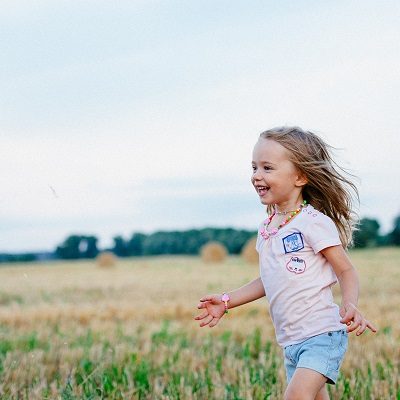
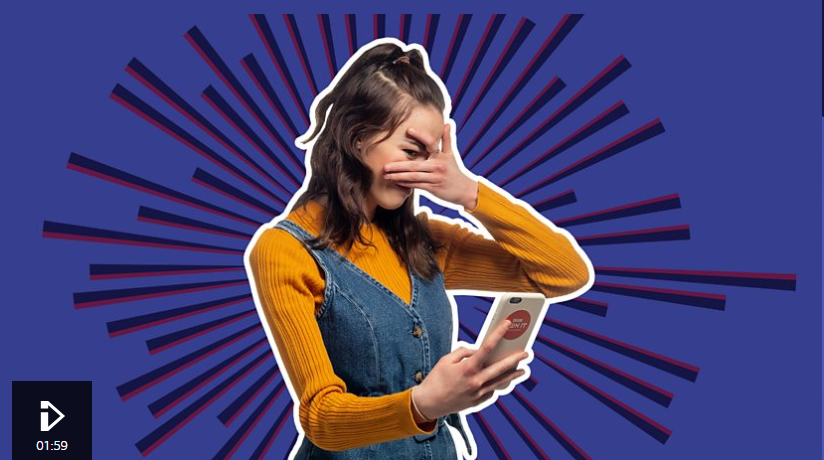
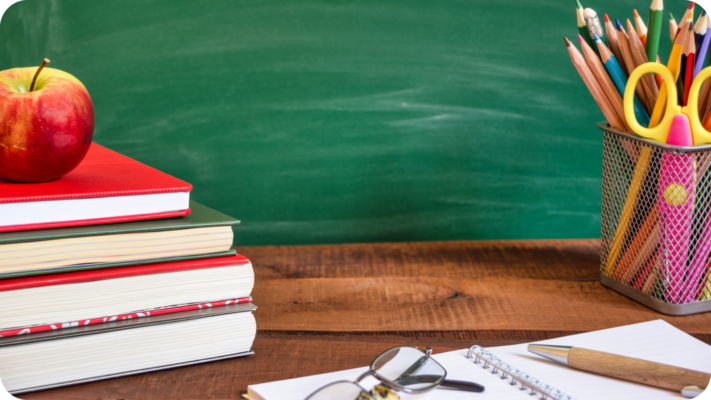
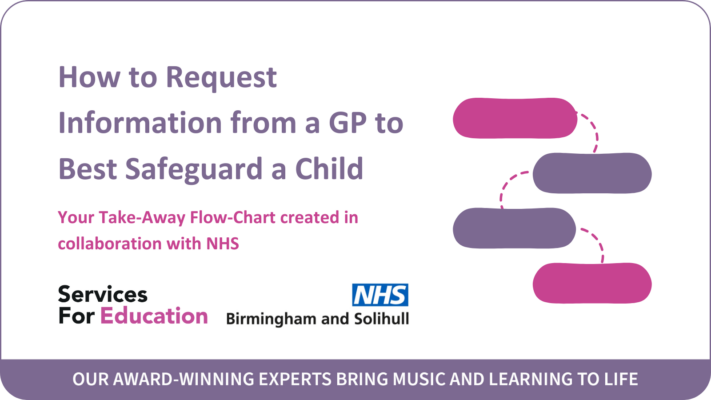

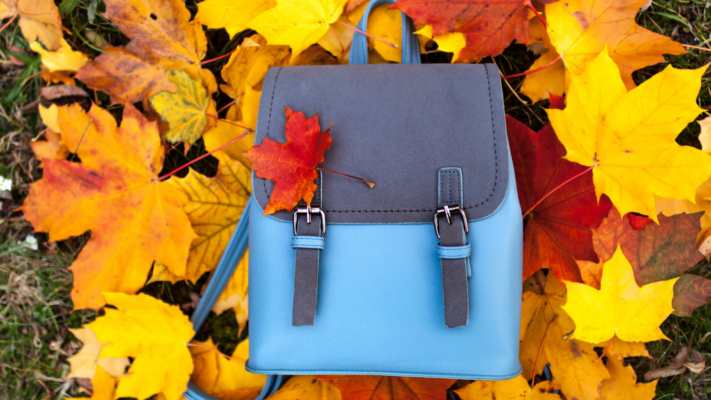
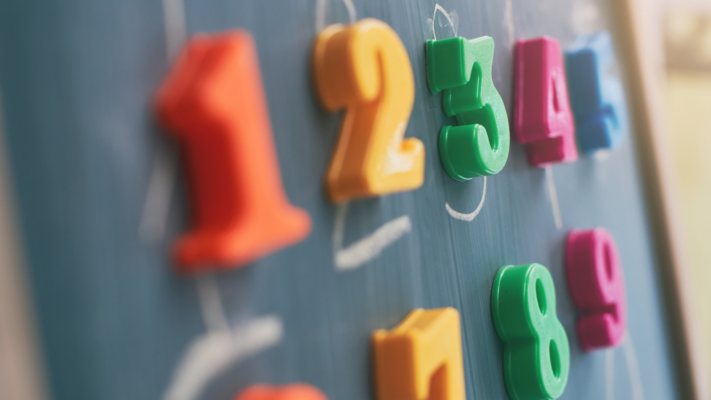
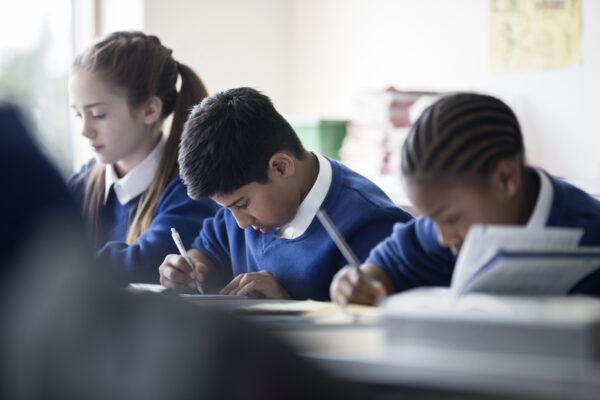

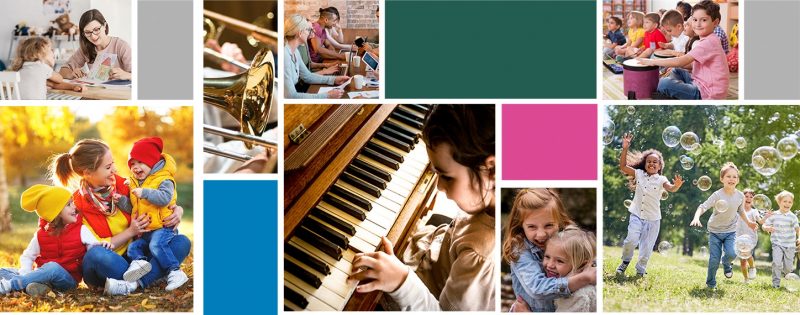
 Lucie Welch – Adviser, Services For Education
Lucie Welch – Adviser, Services For Education Jo Perrin - Interim School Support Lead, Adviser, Services For Education
Jo Perrin - Interim School Support Lead, Adviser, Services For Education


